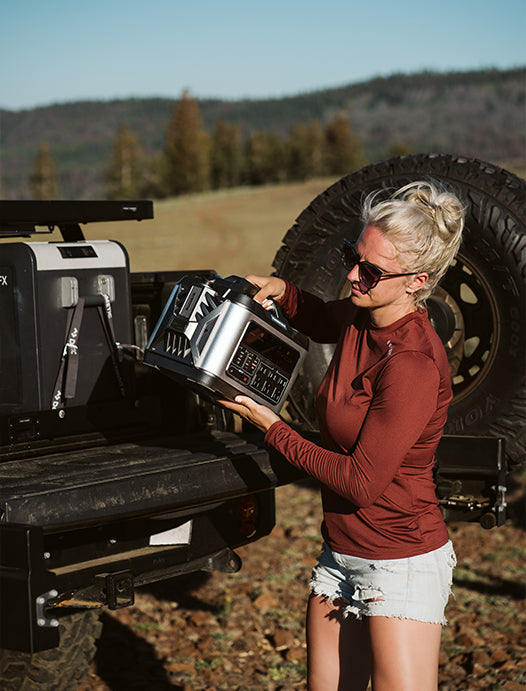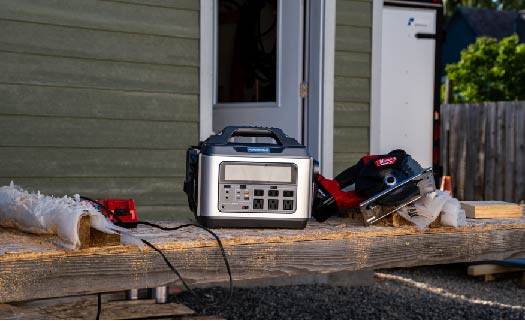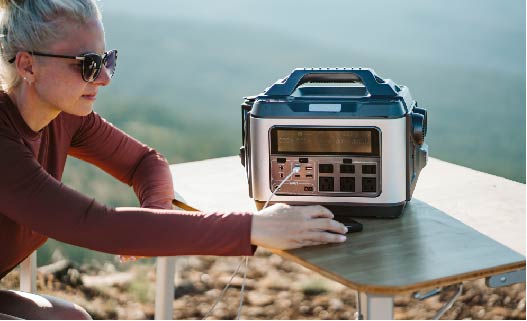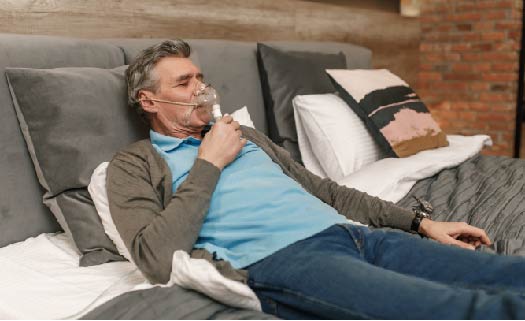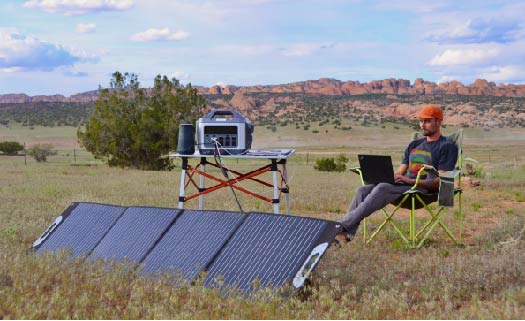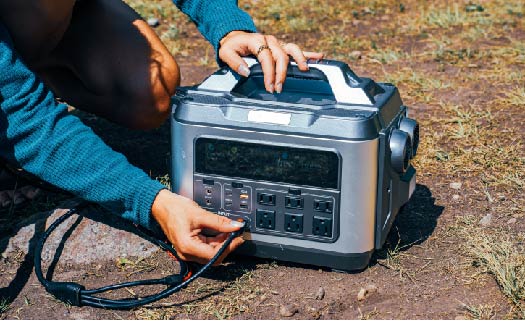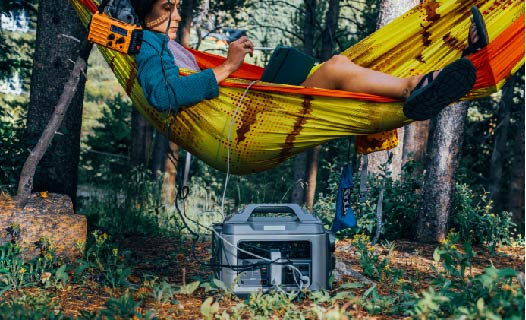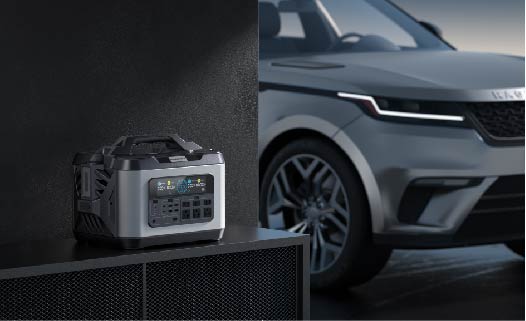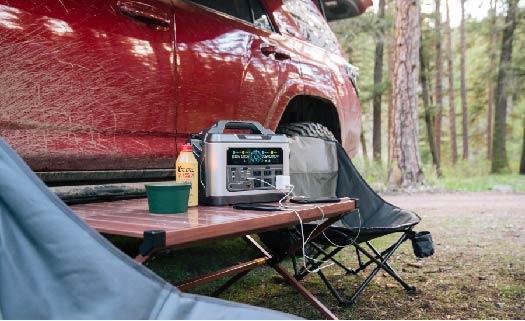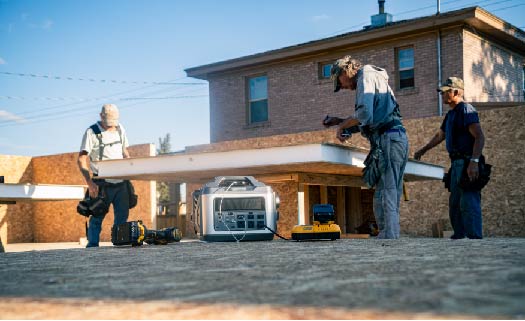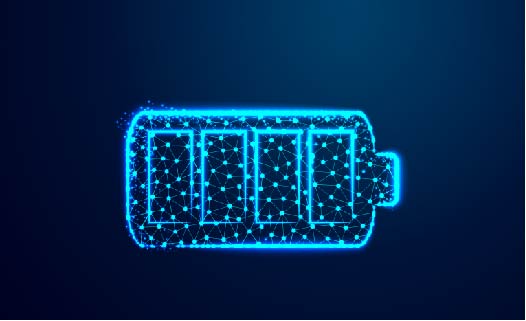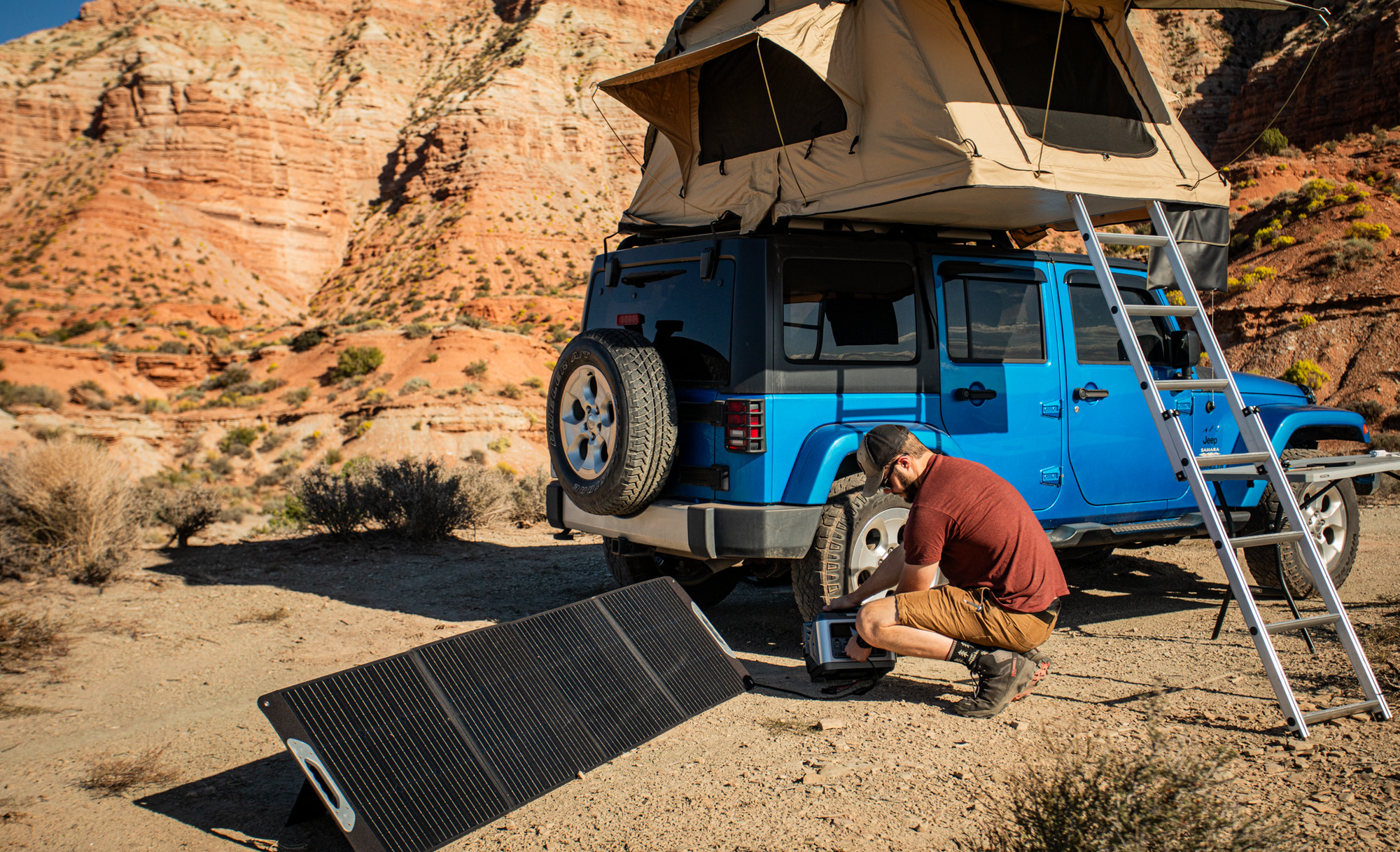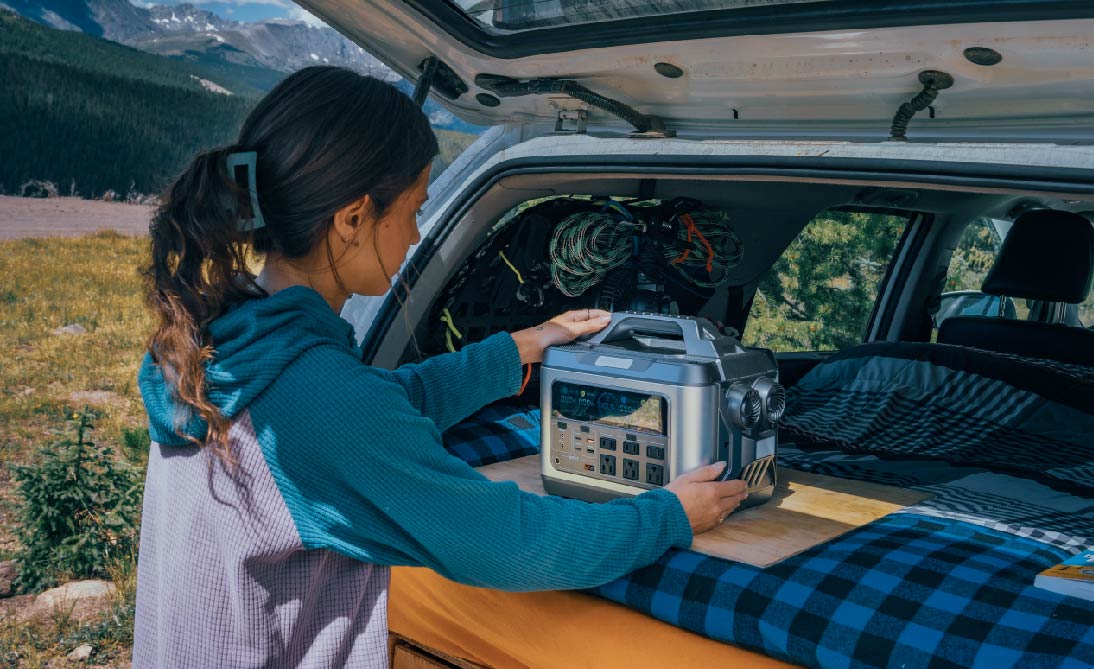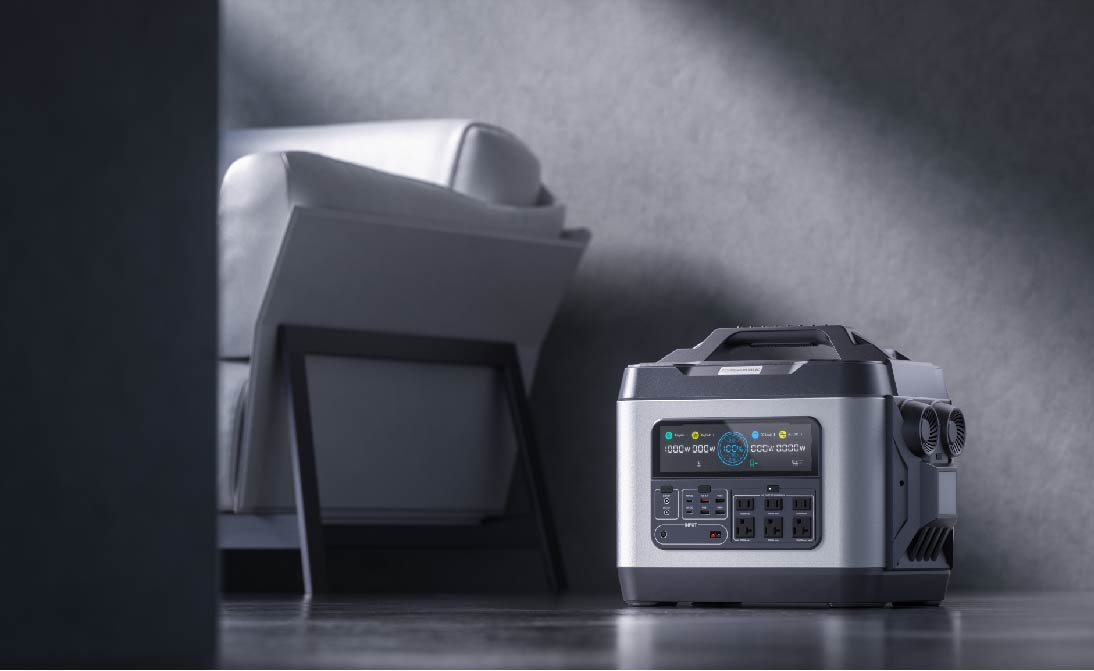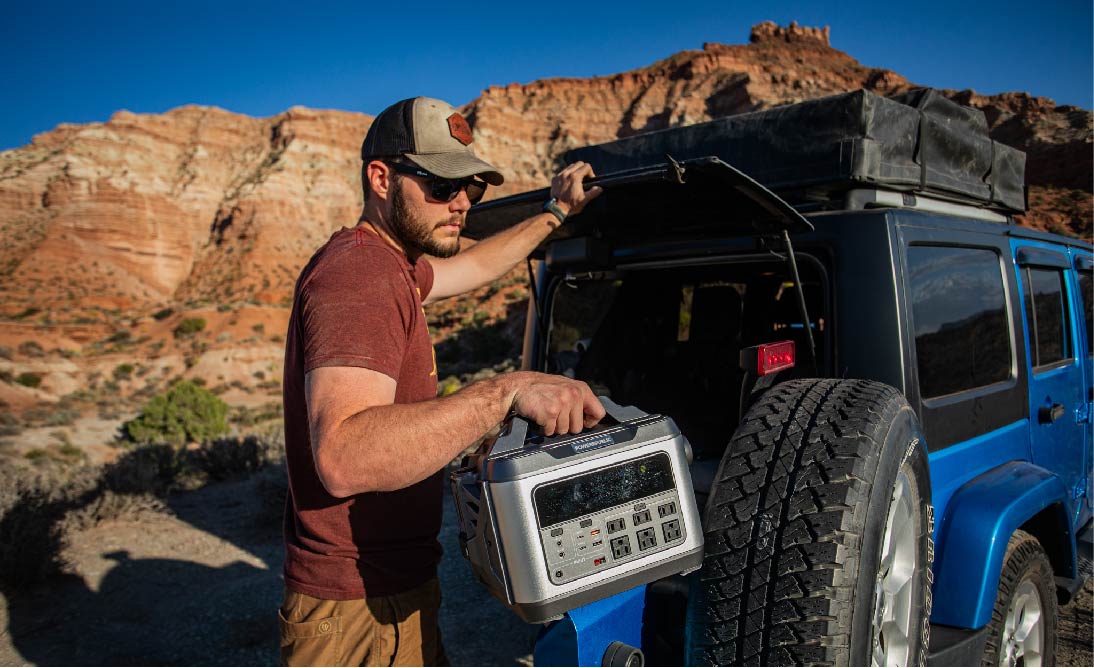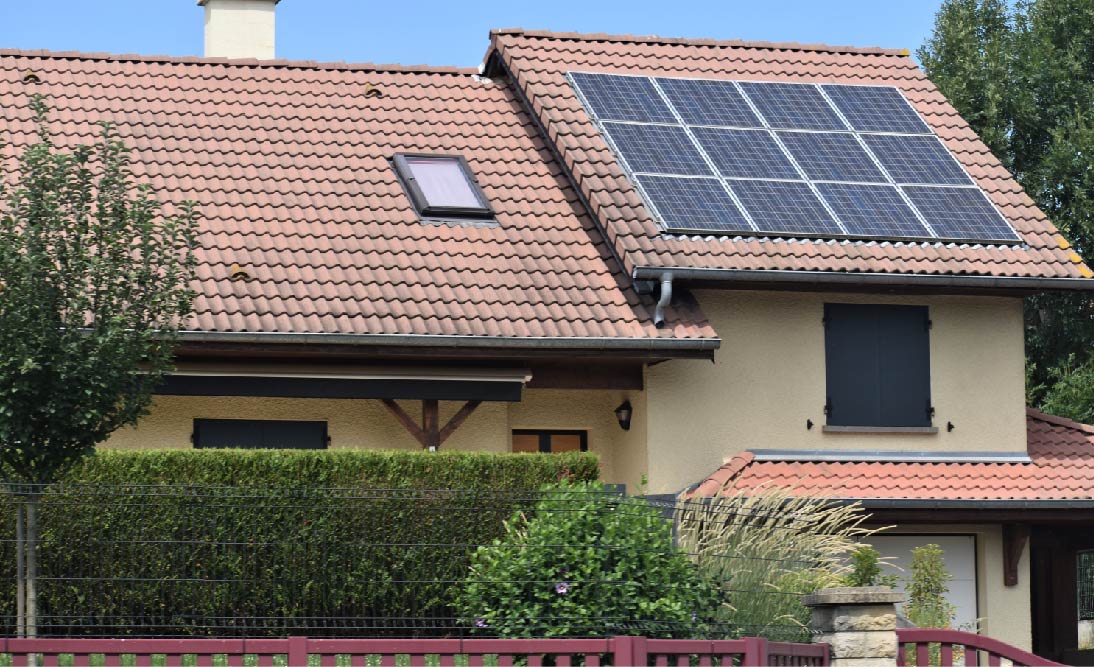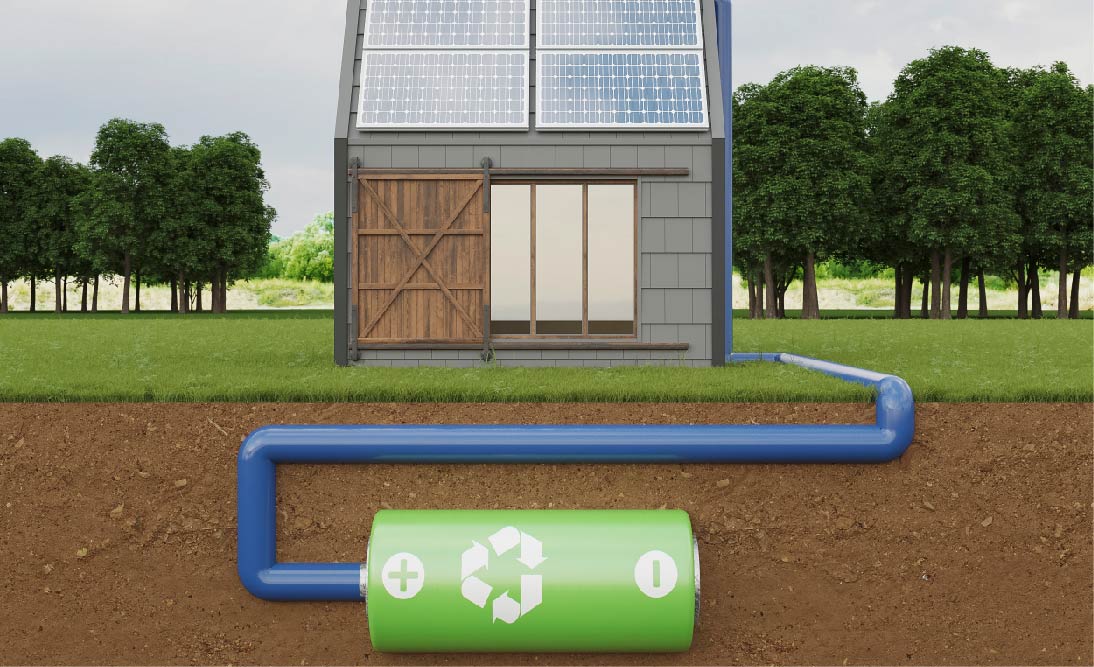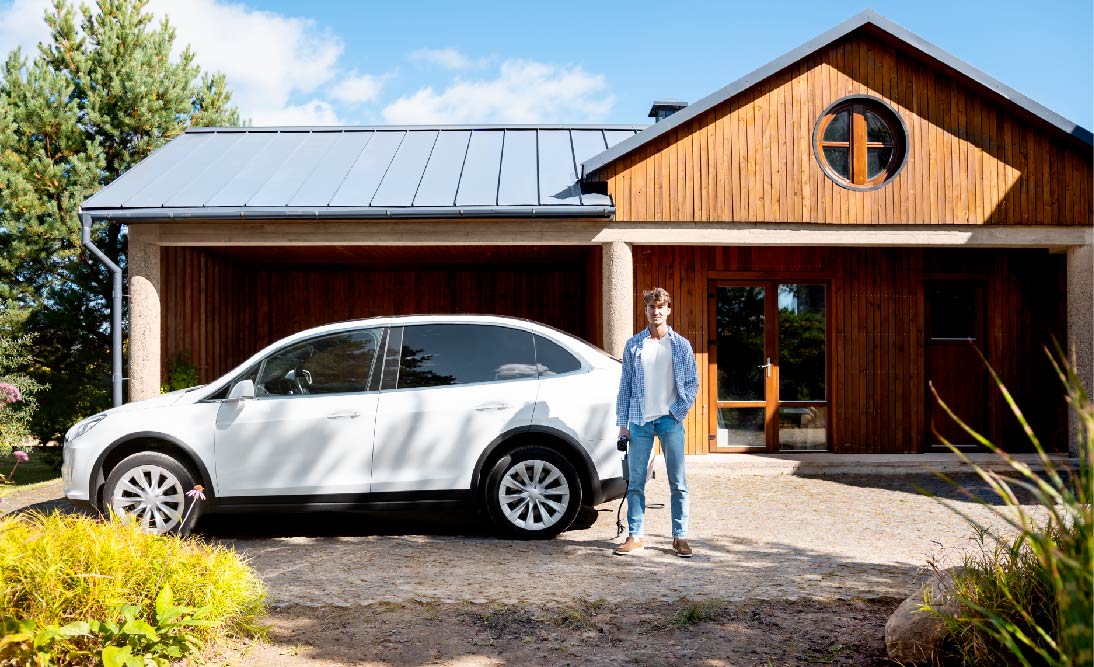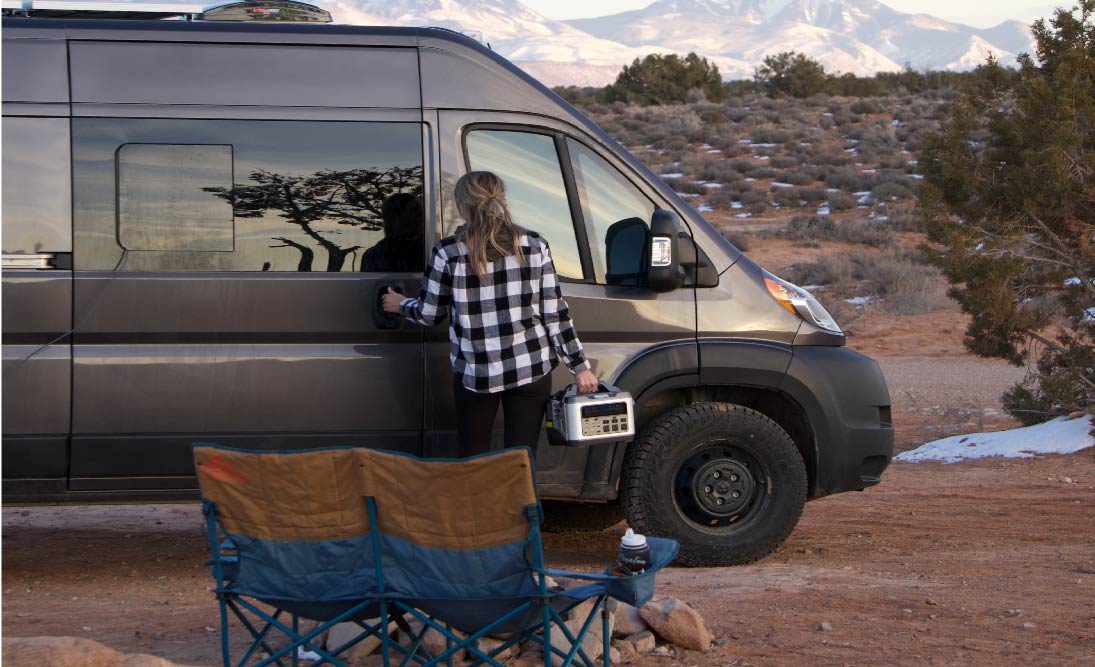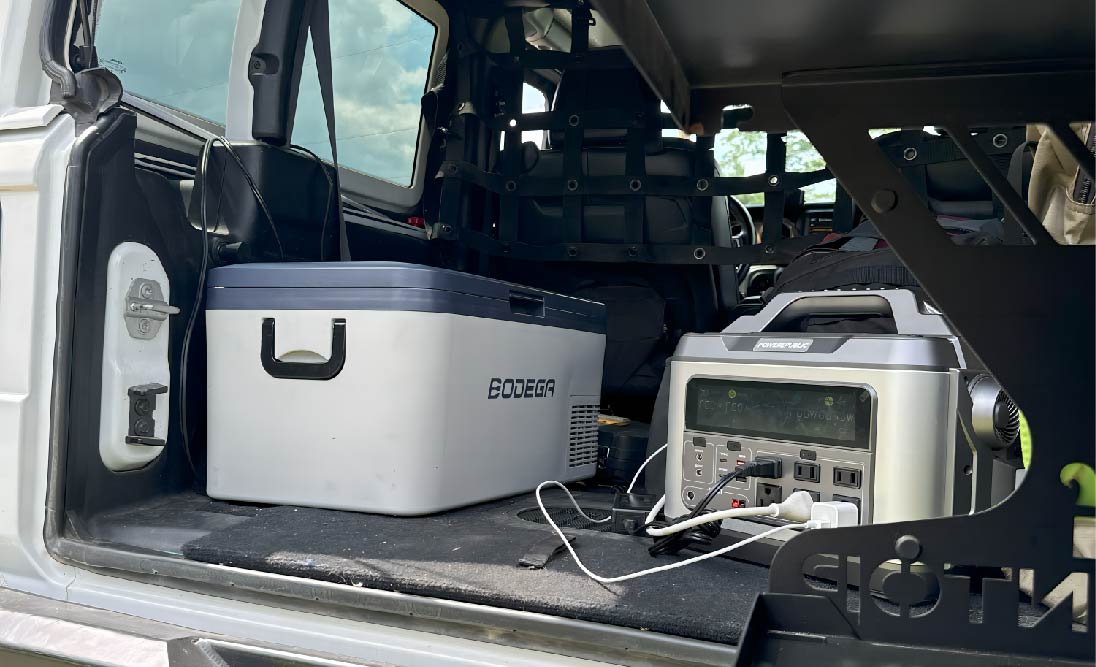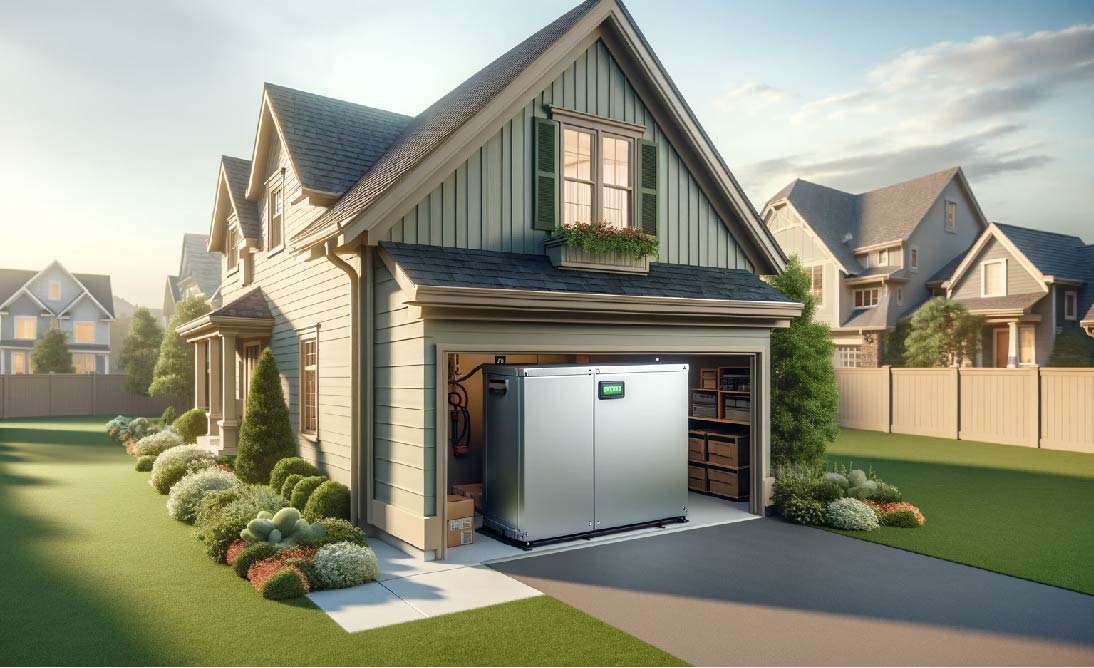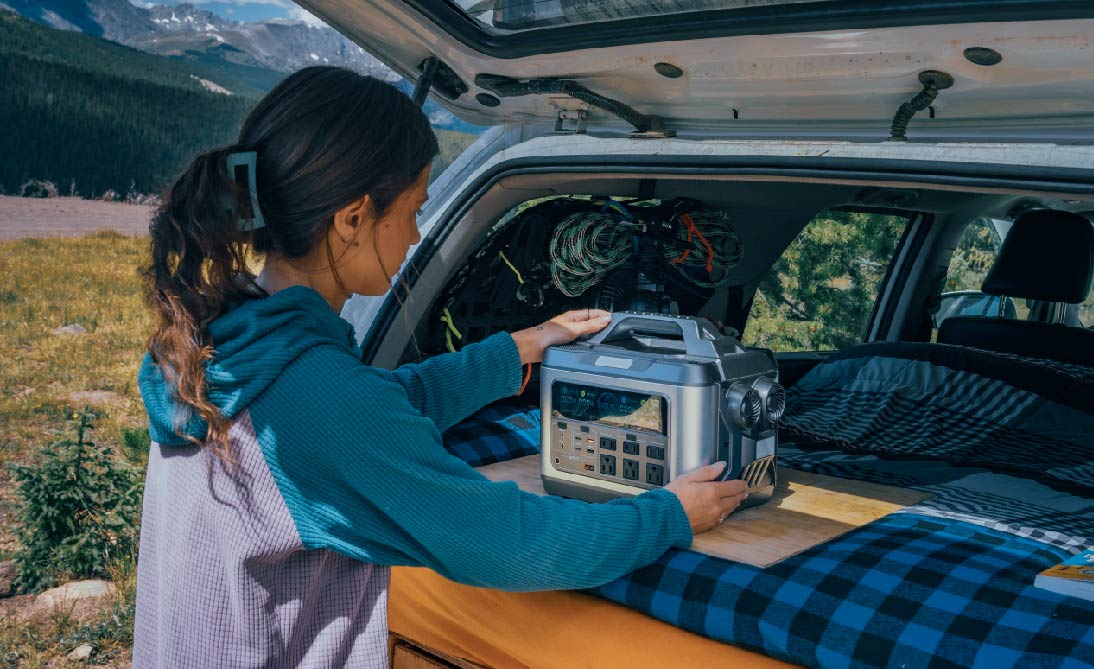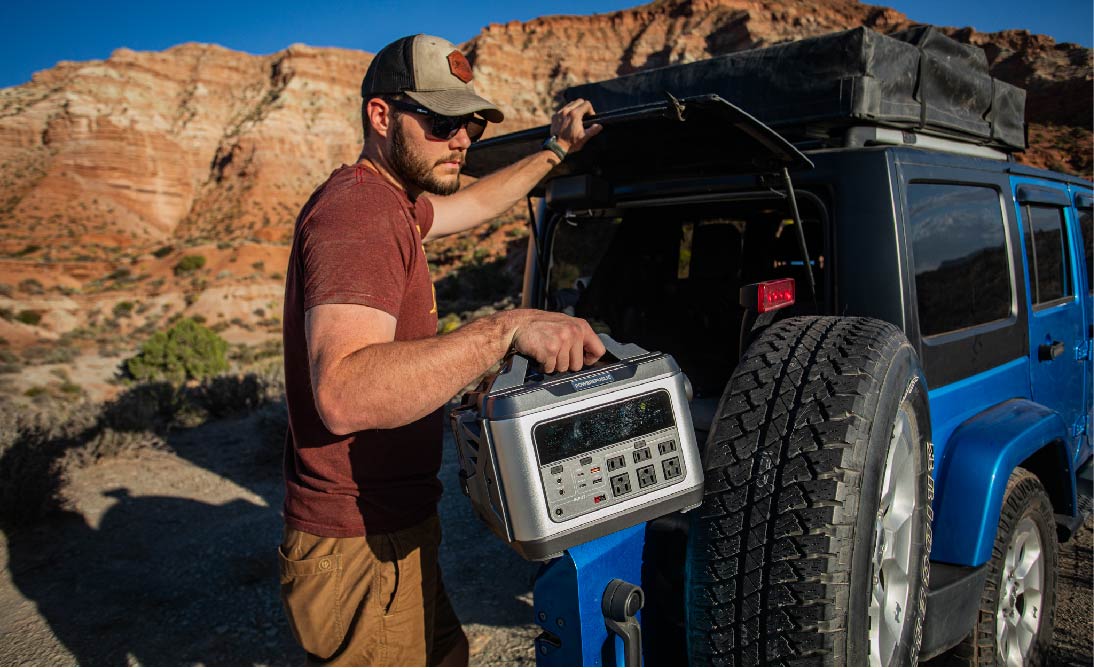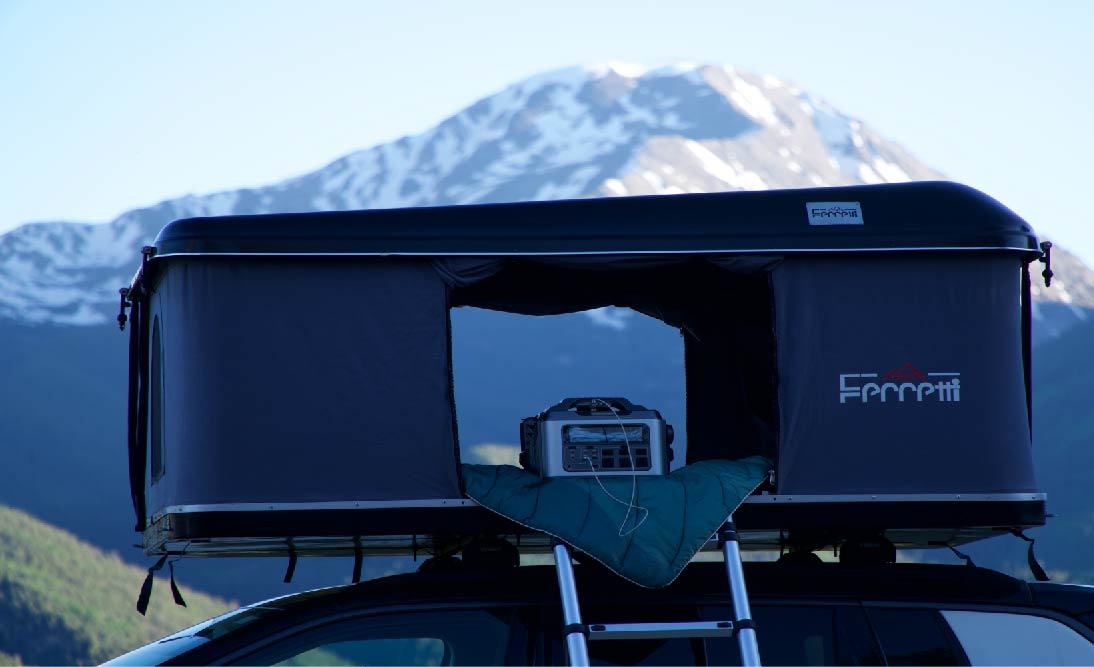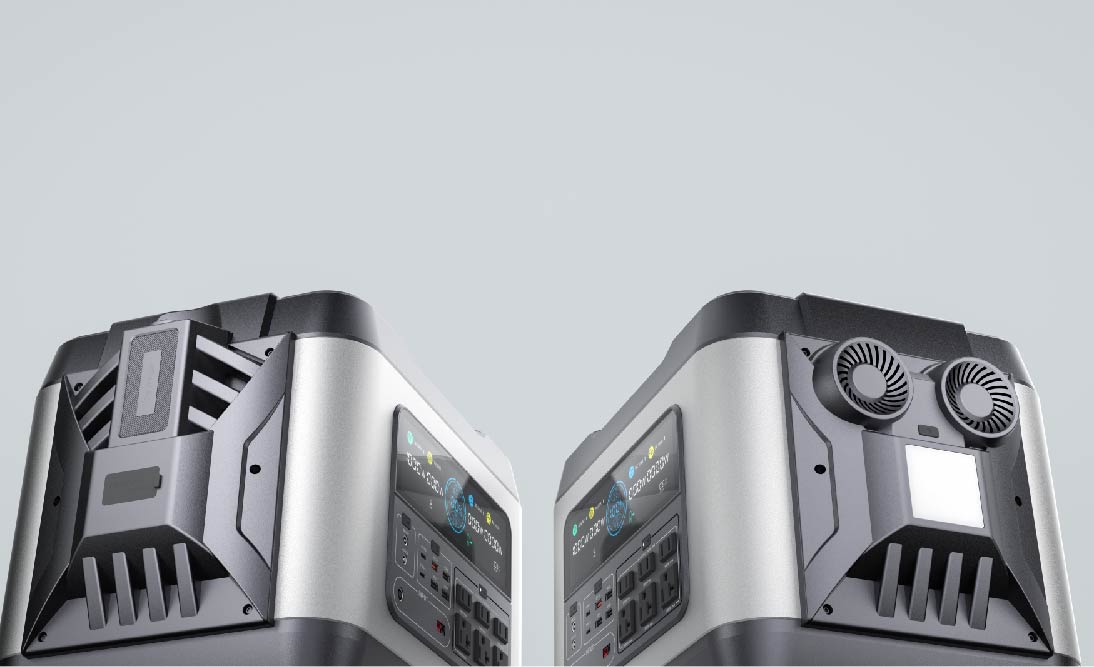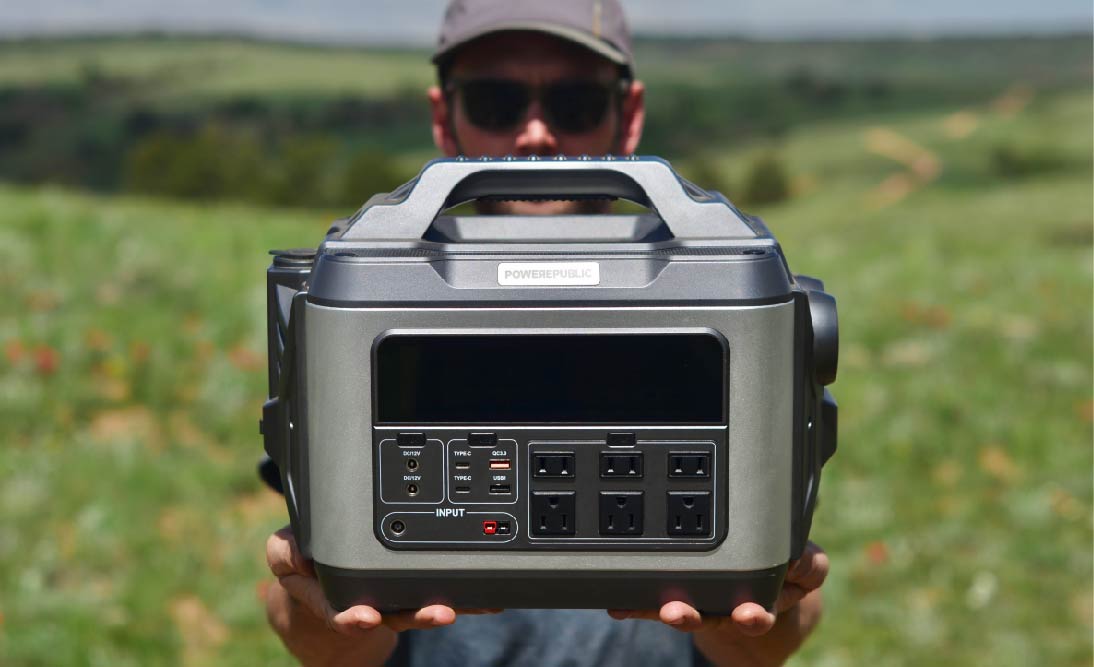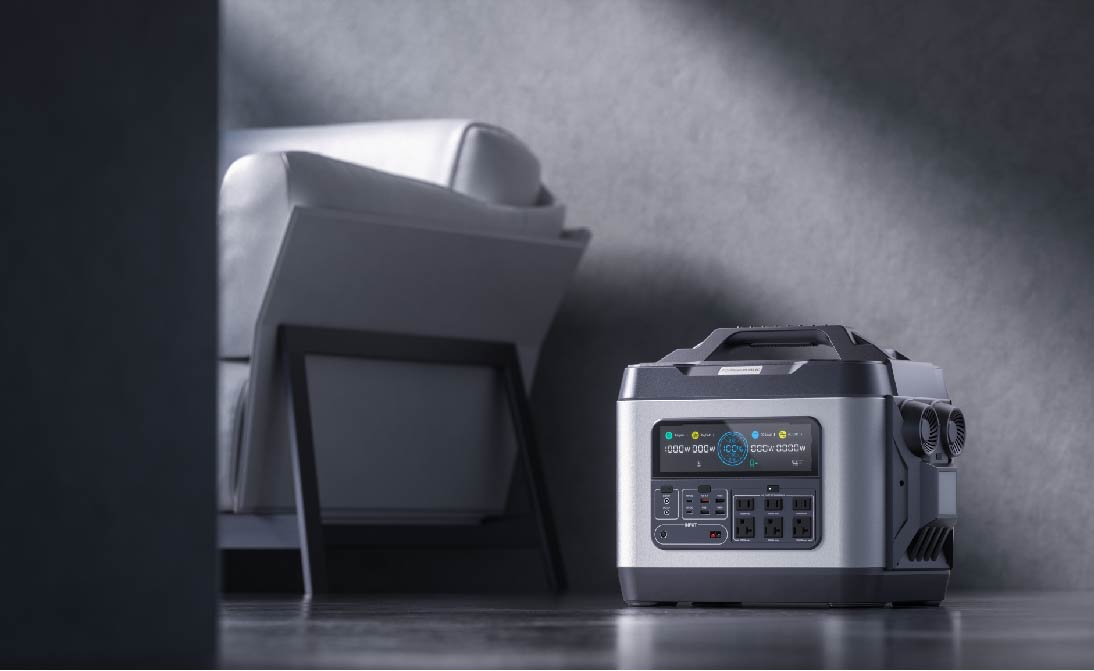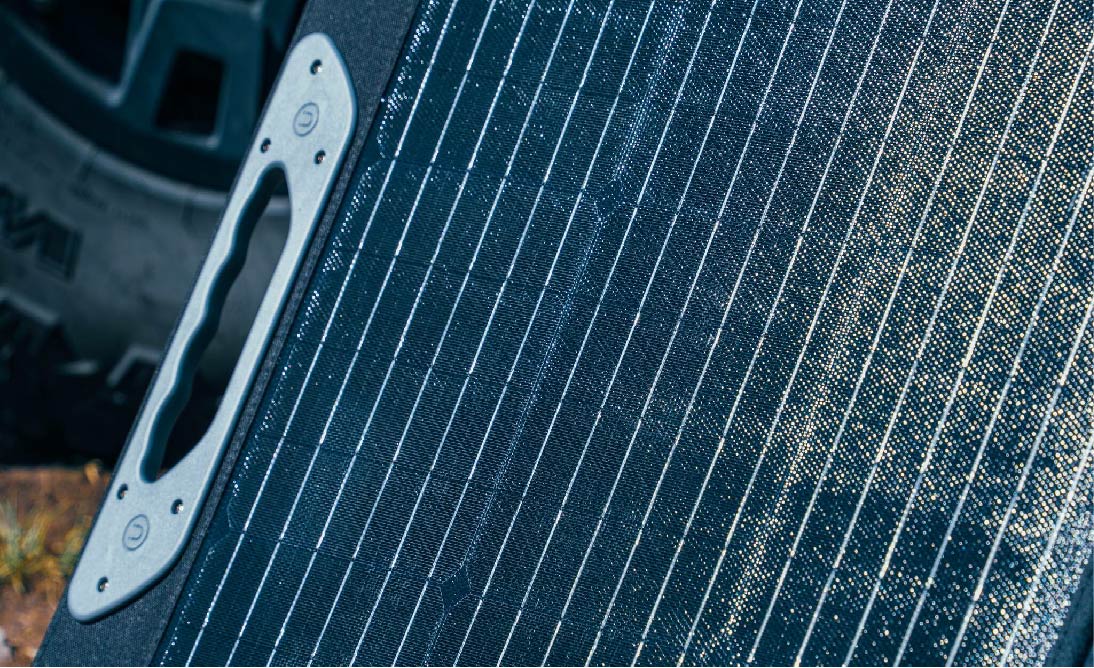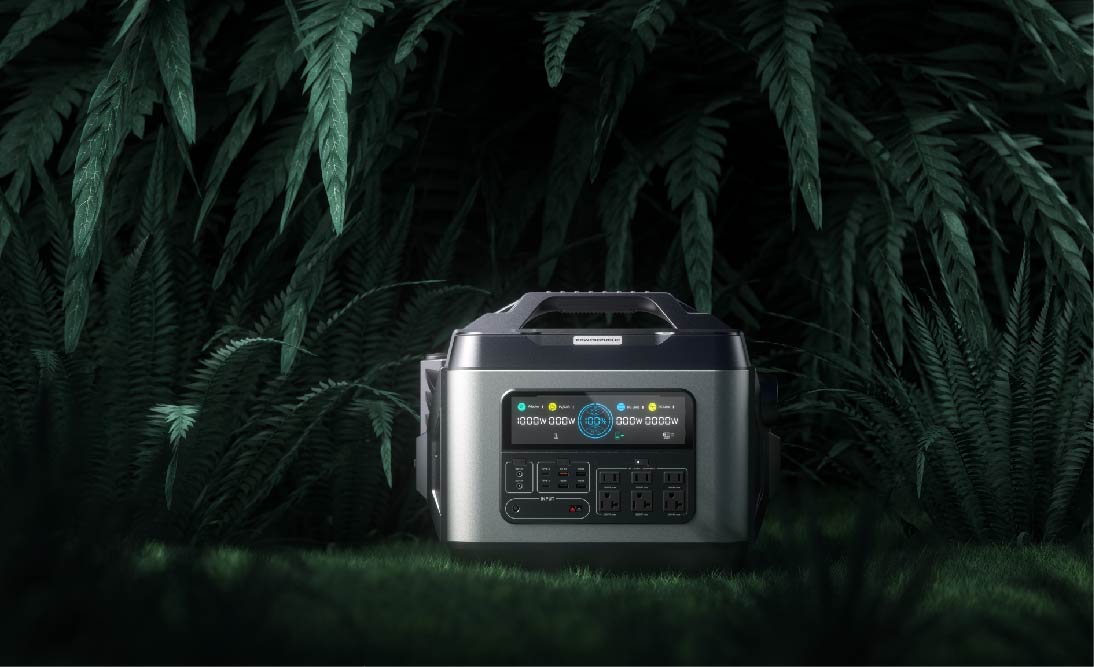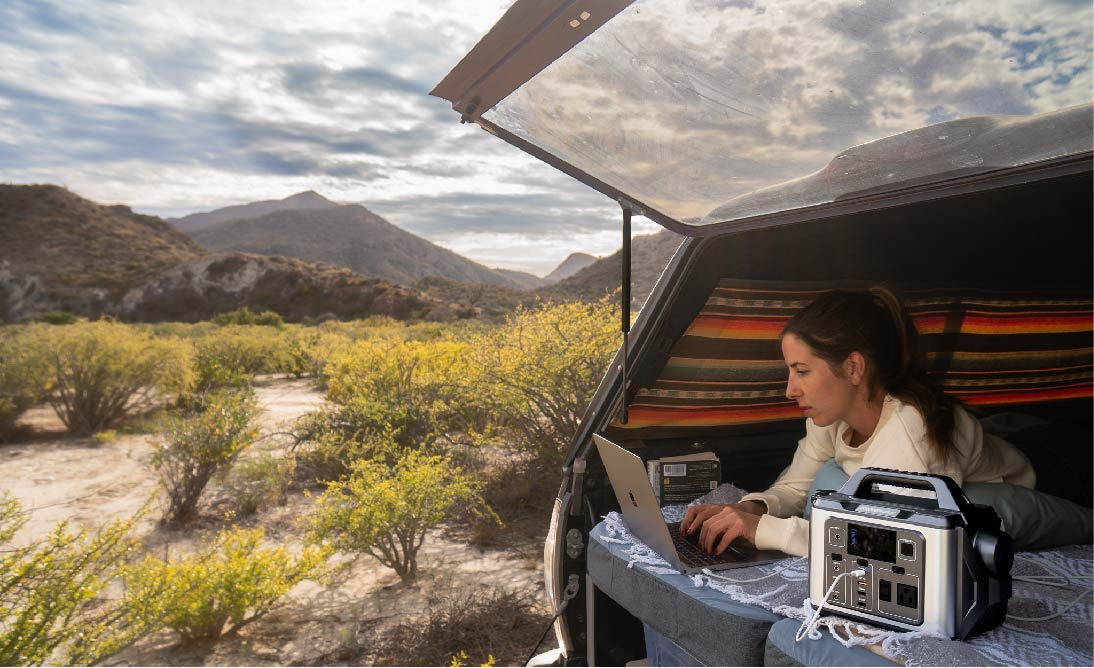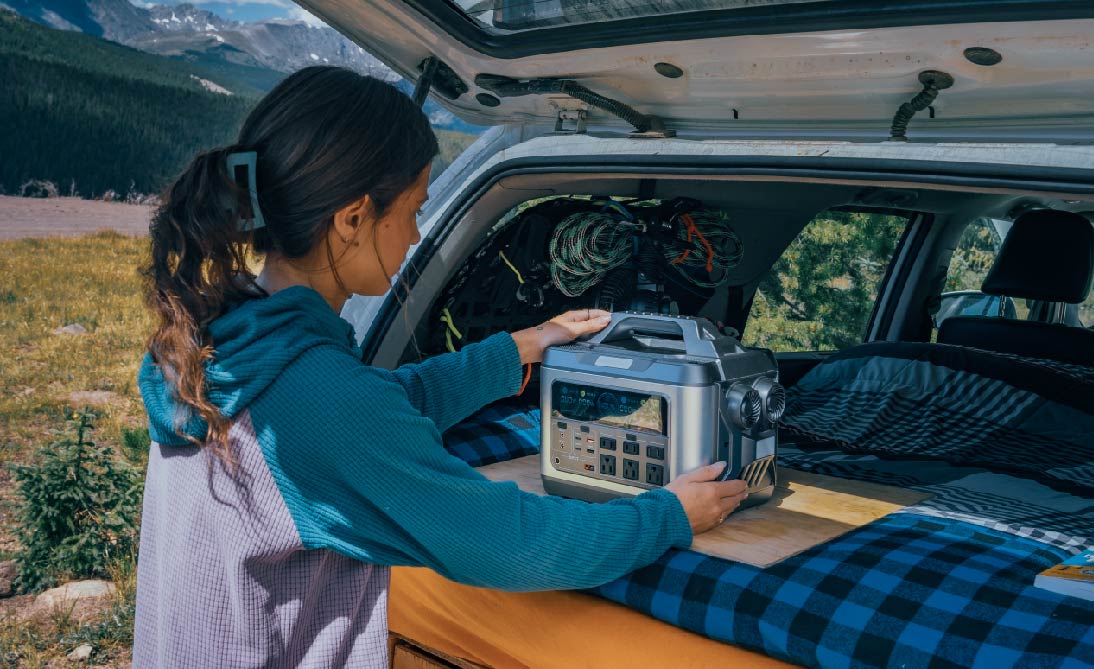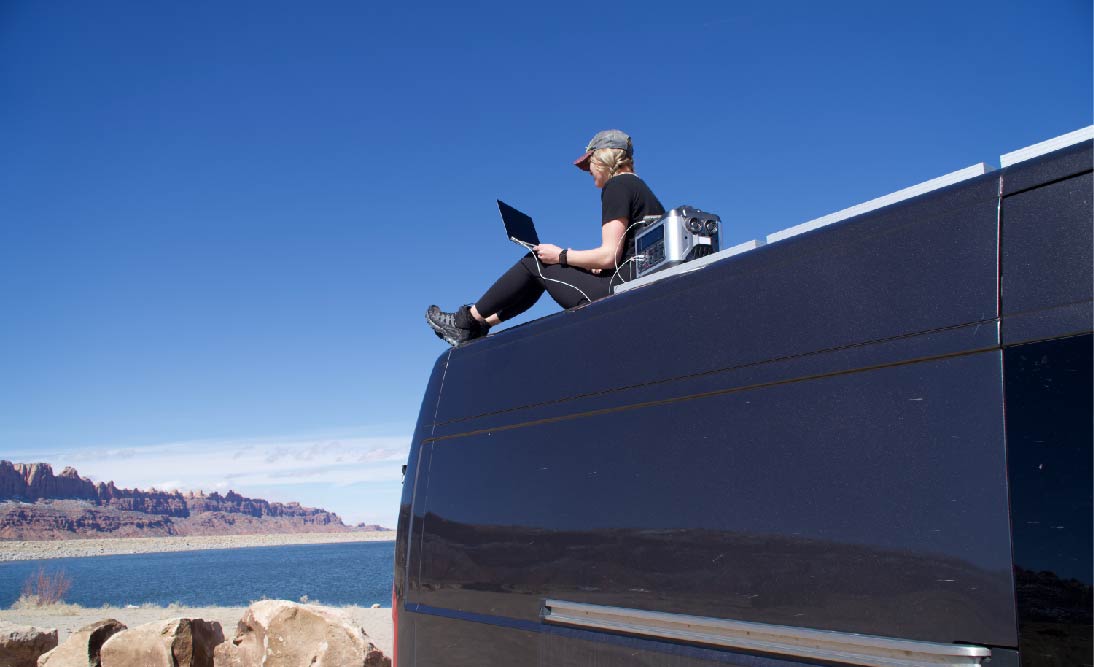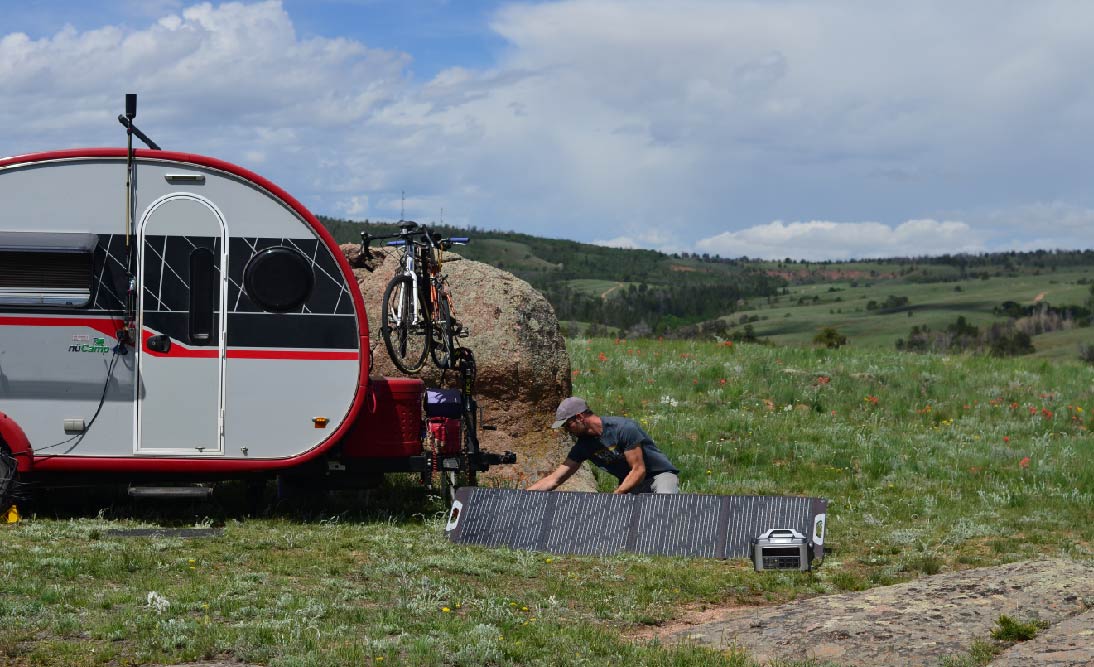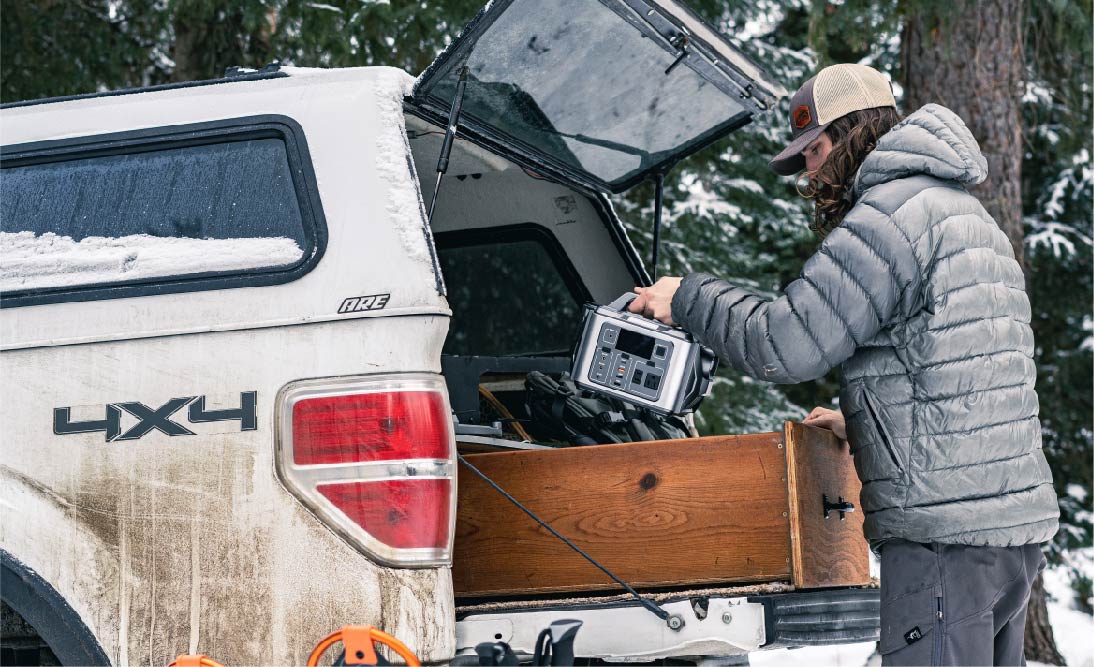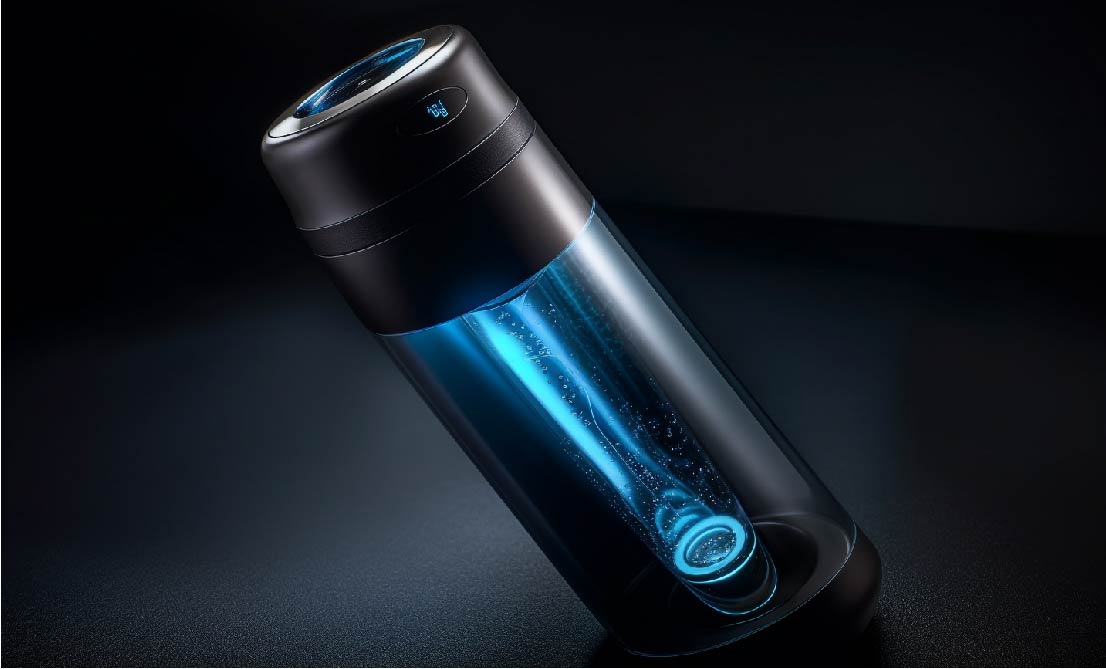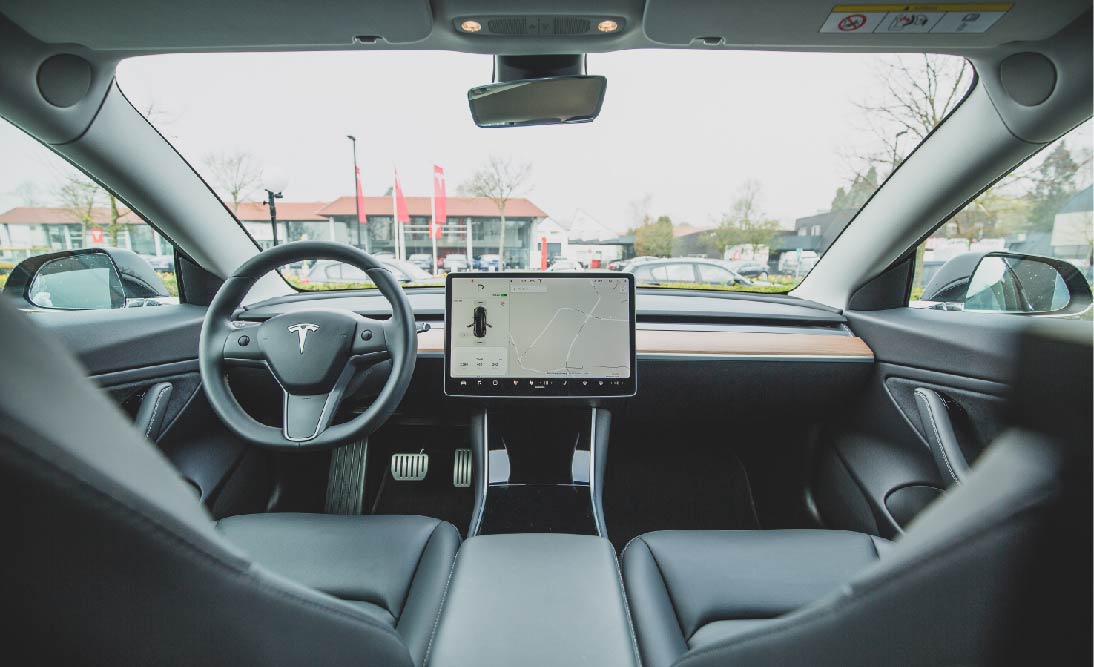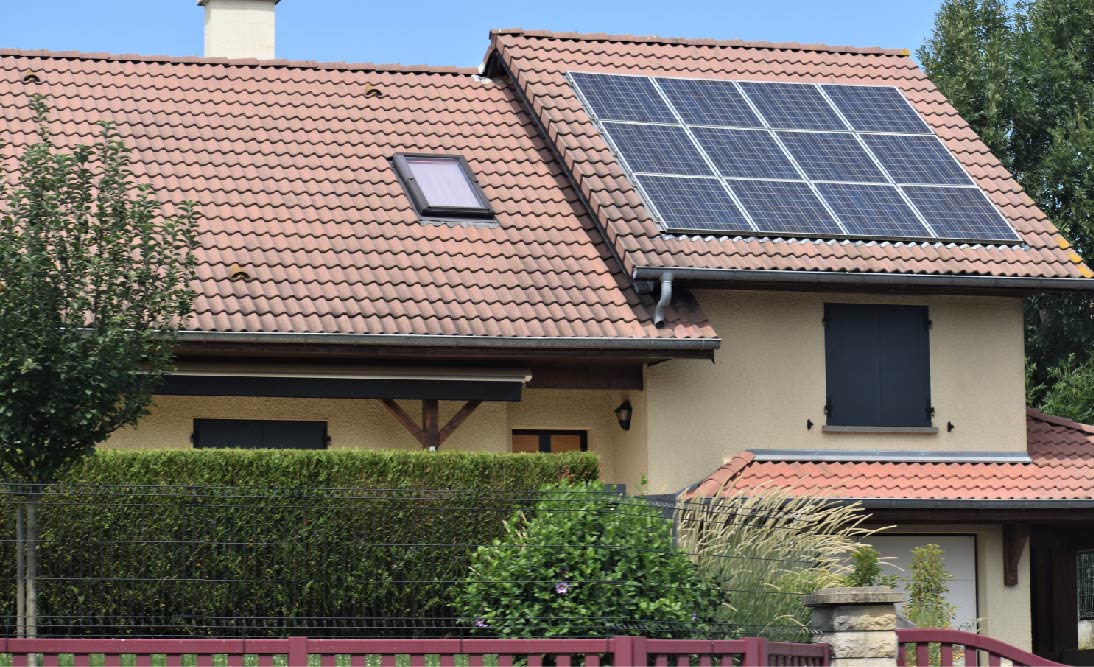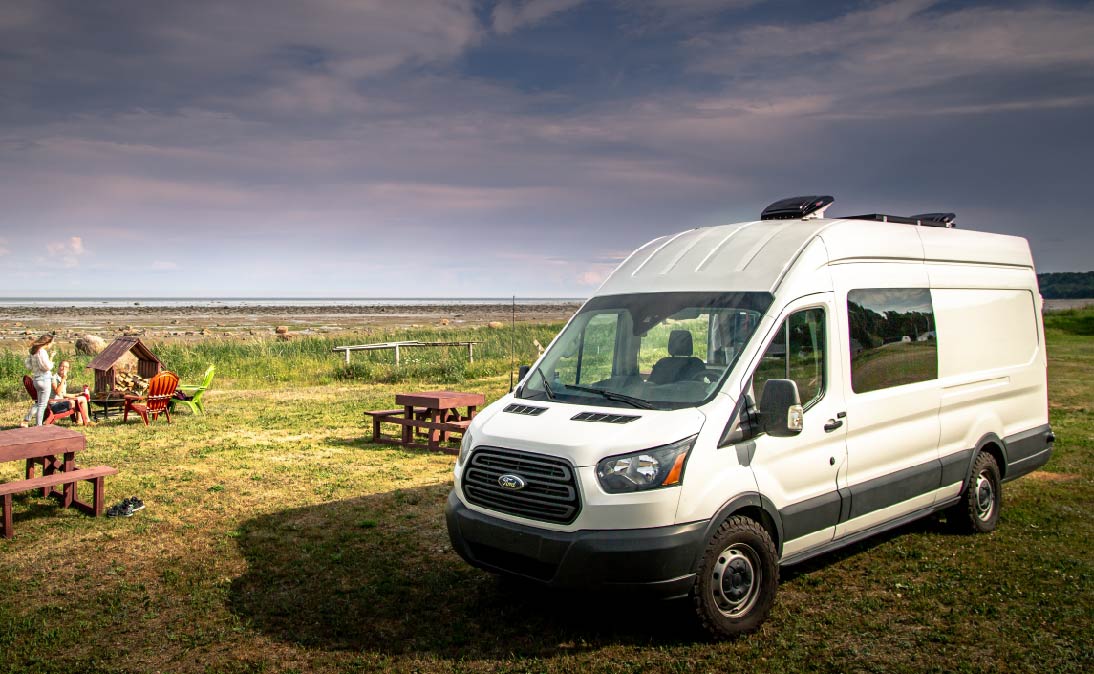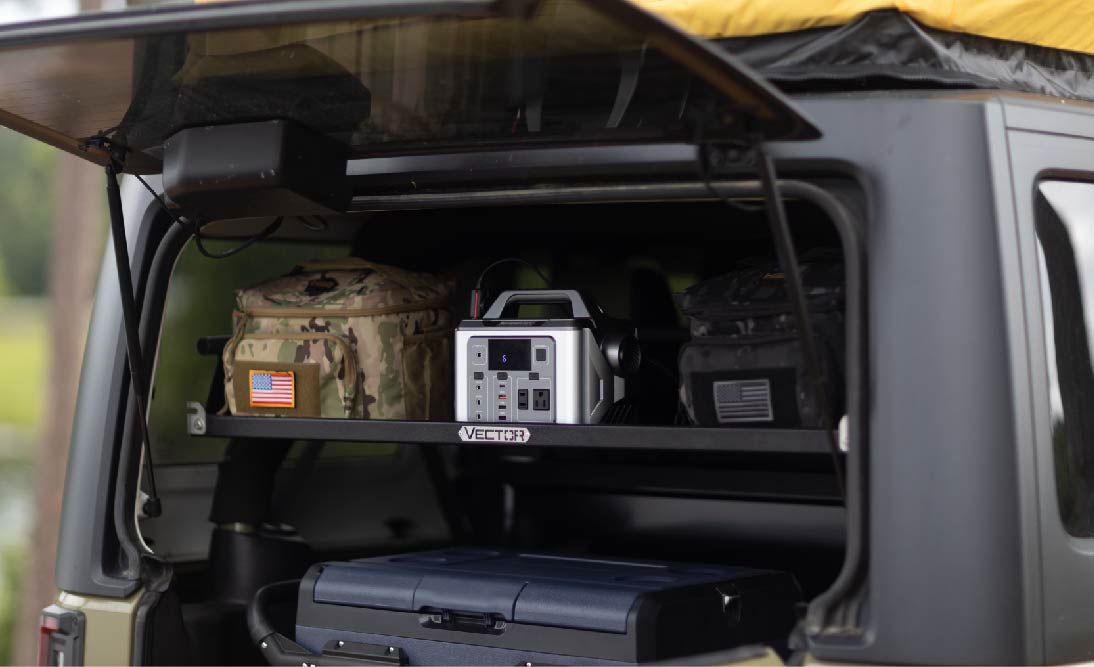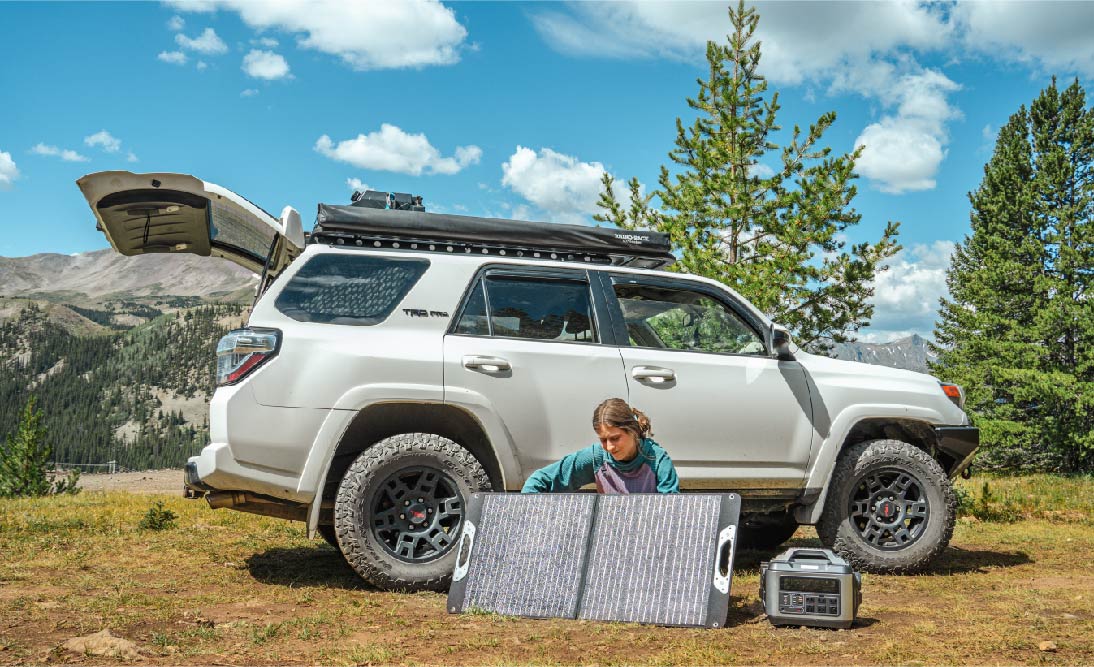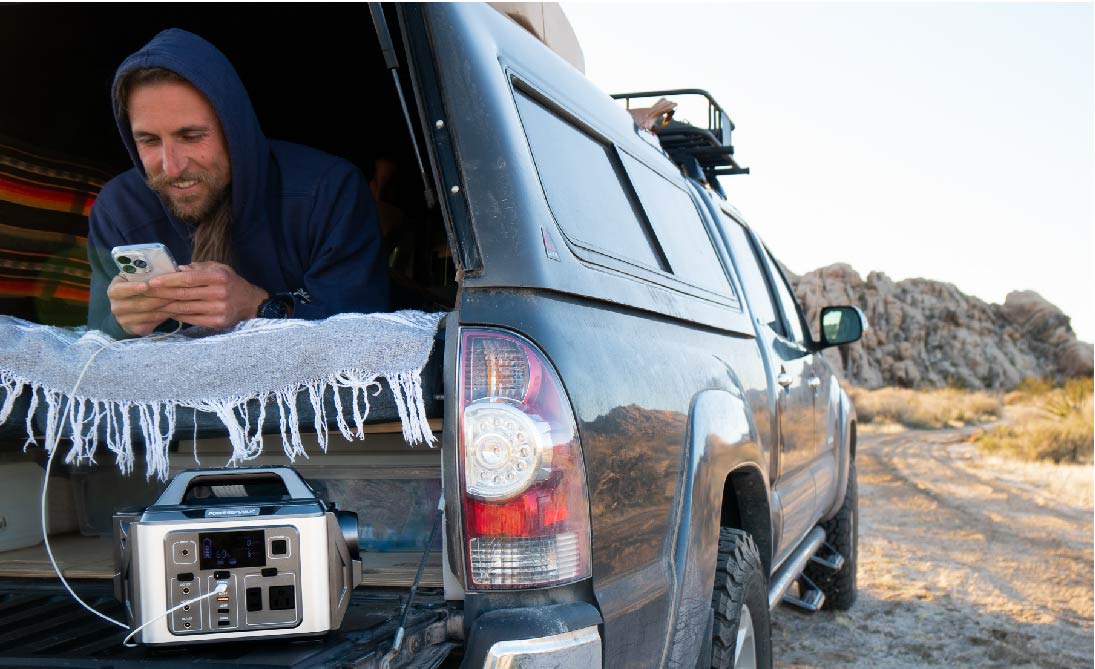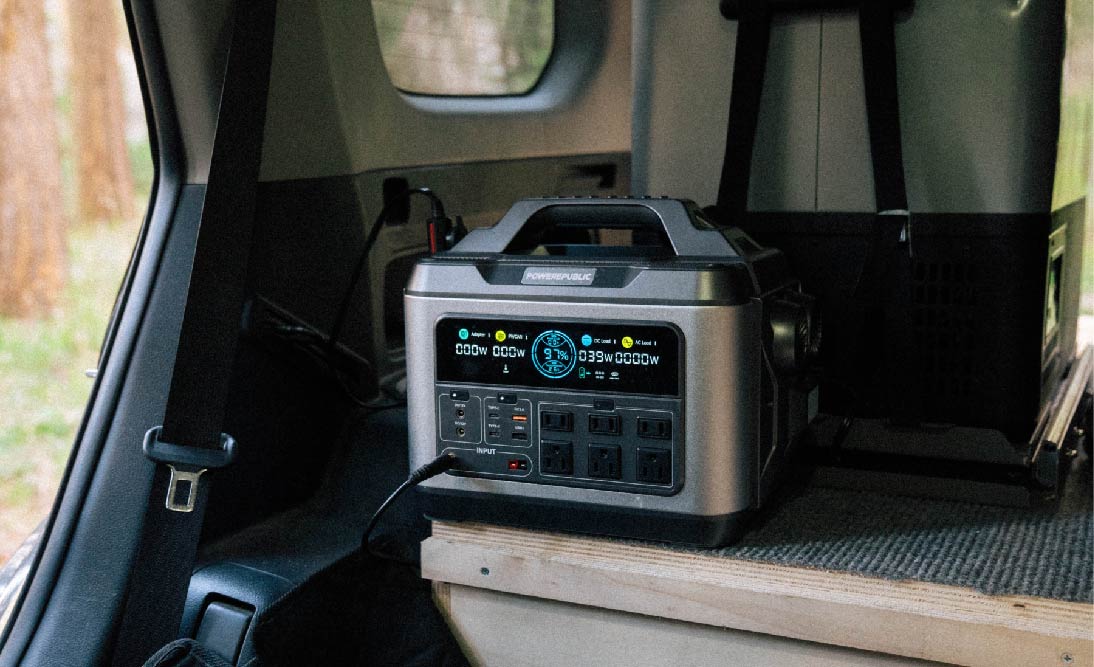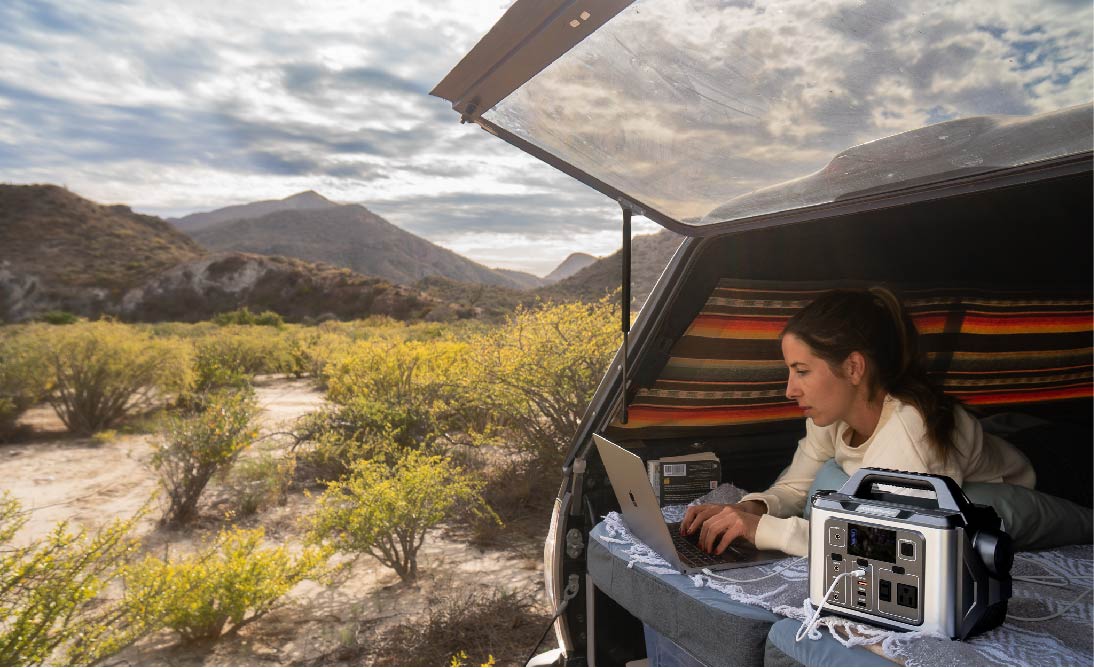Table of Contents:
-
Best Portable Power Station For CPAP Machines at Home for Power Outages
-
Best Portable Power Station For CPAP Machines During Camping
-
FAQ II: Can I Take a Portable Power Station To The Airplane?
Navigating the world of CPAP (Continuous Positive Airway Pressure) machines involves more than just finding the right device, ensuring uninterrupted therapy, whether during power outages or adventurous outdoor escapades, demands a reliable CPAP battery backup solution. In this comprehensive guide, we'll delve into the essentials of CPAP battery backups and portable power stations, answering crucial questions about how many watts a CPAP uses, selection criteria, and the best options for various scenarios.
From understanding the power needs of your CPAP machine to exploring the top-rated portable power stations in 2023 for both emergencies and camping adventures, we've got you covered. Whether you're seeking a CPAP travel battery or a backup for power outages, this guide will help you make informed decisions. Additionally, we'll address common concerns with FAQs, providing insights into using CPAP machines when electricity isn't readily available.
So let’s get started!
What is a CPAP Battery Backup?

A CPAP (Continuous Positive Airway Pressure) battery backup is a crucial component for individuals relying on CPAP therapy for sleep apnea management, especially in situations where a consistent power supply cannot be guaranteed. This backup system is designed to provide uninterrupted power to the CPAP machine, ensuring that the therapy continues even during power outages, camping trips, travel, or other scenarios where access to electrical outlets may be limited.
Key Components of a CPAP Battery Backup:
-
Battery: The core of a CPAP battery backup is the rechargeable battery unit. These batteries are specifically designed to store and deliver power to the CPAP machine. Lithium-ion and LiFePO4 batteries are two common options for rechargeable batteries.
-
Inverter: An inverter is often included in the system to convert the DC (direct current) power stored in the battery to AC (alternating current), which is the type of power required by most CPAP machines. It is an essential component in a CPAP battery backup.
-
Power Output: CPAP battery backup provides stable and regulated power output to ensure the CPAP machine functions optimally. Different models may offer various power output levels, and it's essential to match the backup capacity with the power requirements of the specific CPAP machine.
-
Compatibility: CPAP battery backups are designed to be compatible with a wide range of CPAP machines from various manufacturers. However, ensuring that the backup system is compatible with your specific CPAP model is crucial.
-
Portability: Many CPAP battery backups are designed to be portable, such as portable power stations and solar generators, allowing you to take their therapy on the go. This is particularly beneficial for individuals who enjoy camping or traveling and need a reliable power source for their CPAP machines.
-
Charging Options: Battery backups are rechargeable, and the charging options may vary. Some can be charged using standard electrical outlets, while others, such as portable power stations and solar generators, may offer additional charging methods such as solar power.
-
Duration of Power Supply: The duration for which a CPAP battery backup can provide power depends on factors like the capacity of the battery and the power consumption of the CPAP machine. This information is crucial for you to plan for extended periods without access to a power source.
A CPAP battery backup is an indispensable accessory for individuals relying on CPAP therapy, offering a reliable power source that ensures continuous treatment, regardless of external power challenges. The choice of a suitable CPAP battery backup should consider factors such as compatibility, portability, charging options, and the specific power requirements of the CPAP machine.
How Many Watts Does a CPAP Use?

The power consumption of CPAP (Continuous Positive Airway Pressure) machines can vary depending on the specific model, brand, and additional features.
Here's a detailed breakdown of the power usage for different types of CPAP machines:
-
Standard CPAP Machines: Standard CPAP machines typically consume around 30 to 60 watts. This range may vary based on factors like the machine's pressure settings and additional features like humidifiers.
-
Auto-Adjusting CPAP (APAP) Machines: Auto-adjusting CPAP machines, also known as APAP machines, have variable pressure settings based on the patient’s breathing patterns. The power consumption of APAP machines falls within a similar range of 30 to 60 watts, similar to standard CPAP machines.
-
BiPAP (Bi-Level Positive Airway Pressure) Machines: BiPAP machines, which provide two different pressure settings for inhalation and exhalation, may have a slightly higher power consumption. On average, they can use between 40 to 80 watts.
-
Travel CPAP Machines: Travel CPAP machines are designed to be more compact and portable. They often have lower power requirements, ranging from 20 to 40 watts. It's important to note that these machines may sacrifice some features for increased portability.
-
CPAP Machines with Integrated Humidifiers: CPAP machines with integrated humidifiers, which add moisture to the airflow to prevent dryness, can consume more power. The total power usage for these machines, including the humidification feature, may range from 60 to 100 watts.
CPAP users need to check the power specifications provided by the manufacturer for their specific machine model. This information is typically available in the user manual or on the device itself. Additionally, you should consider the power needs when selecting a CPAP battery backup to ensure it can provide sufficient power for the required duration, especially in scenarios like camping or during power outages.
How To Select The Best Portable Power Station For My CPAP?

Selecting the best portable power station for your CPAP machine involves considering various factors to ensure compatibility, portability, and sufficient power supply. Here's a detailed guide to help you make an informed decision:
1. Check CPAP Power Requirements
-
Refer to your CPAP machine's user manual or specifications to determine its power requirements in watts. This information is crucial for selecting a portable power station with sufficient capacity.
-
As mentioned above, most CPAPs have a rated power ranging from 20W to 100W, depending on the type you have.
2. Calculate Power Consumption
-
Calculate the daily power consumption by multiplying the CPAP machine's wattage by the number of hours you use it each night. For example, if your CPAP machine uses 50 watts and you use it for 8 hours, the daily consumption is 400Wh(50W * 8 hours).
3. Consider Additional Features
-
If your CPAP machine has integrated features like a heated humidifier or a built-in power inverter, factor in their power consumption when selecting a portable power station. Add these values to the CPAP machine's power requirements.
-
For example, if you want to use a 50W CPAP machine with an integrated 20W heated humidifier for 8 hours, the total daily power consumption would be 400Wh (50W * 8 hours) for the CPAP machine and 160Wh (20W * 8 hours) for the humidifier, totaling 560Wh per day. When selecting a portable power station, ensure its capacity exceeds 560Wh for an uninterrupted and reliable power supply not only to the CPAP machine and its integrated features but also to other devices.
4. Choose a Portable Power Station with Adequate Capacity
-
Look for a portable power station with a capacity that exceeds your calculated daily consumption(like the 560Wh example above). This provides a safety margin and ensures the power station can handle unexpected situations or extended use.
-
Example: If your CPAP machine and accessories consume 400Wh daily, consider a portable power station with a capacity of 500Wh or higher to account for potential variations.
5. Consider Battery Type and Charging Options
-
Opt for a portable power station with a battery type that suits your needs. Lithium-ion batteries and LiFePO4 batteries are common for their high energy density and portability.
-
Check the charging options. Some power stations can be charged via electrical outlets, car chargers, or solar panels. Consider your preferred charging method and the availability of power sources in your intended use environment.
6. Evaluate Weight and Portability
-
Since portability is a key consideration for traveling and camping, choose a power station that strikes a balance between capacity and weight. Lighter options are more suitable for camping and travel.
7. Check Additional Outlets and USB Ports
-
Ensure the power station has the necessary outlets and USB ports to connect your CPAP machine. Check for compatibility with your CPAP's power plug or any adapters required.
8. Review User Reviews and Ratings
-
Look for user reviews and ratings for the portable power station you are considering, such as Trustpilot. Real-world experiences can provide insights into the performance, reliability, and compatibility of portable power stations.
-
POWEREPUBLIC has a 4.5 rating on Trustpilot.
By carefully considering these factors and performing the necessary calculations, you can confidently select the best portable power station for your CPAP machine, ensuring a reliable and uninterrupted sleep therapy experience in various settings.
Best Portable Power Station For CPAP Machines at Home For Power Outages

For individuals who live in regions with frequent power outages, the significance of a durable and dependable battery backup for CPAP machines cannot be overstated. The unpredictability of electricity disruptions underscores the necessity for a robust solution that ensures uninterrupted sleep therapy.
If you or your loved ones are in search of the best portable power station for CPAP machines, the POWEREPUBLIC, comprising the T1200, T2200, and T3000 portable power stations, stands out as a reliable and long-lasting choice. These models have been specifically designed to serve as ideal battery backups for CPAP machines, addressing the crucial need for continuous therapy even in the absence of a reliable power grid.
What sets these three models apart is not only their reliability but also their versatility in recharging options. Whether through conventional AC outlets, solar panels for eco-conscious users, or your car sockets for on-the-go charging, these power stations provide flexibility to suit various lifestyles and environments.
To provide a comprehensive overview, the following table outlines some important features of the POWEREPUBLIC T1200, T2200, and T3000 models, including their capacity to power a CPAP machine for extended durations:
|
Model |
Power & Capacity |
Additional Features |
CPAP Operation Time(hours) |
|
1200W/1110Wh Peak 2600W |
13 Output Ports Lithium-Ion Battery |
Standard CPAP(30W- 60W): 15.5 to 31.5 Auto-Adjusting CPAP(30W- 60W): 15.5 to 31.5 BiPAP(40W- 80W): 11.5 to 23.5 Travel CPAP(20W- 40W): 23.5 to 47 CPAP with IntegratedHumidifiers(60W- 100W): 9.5 to 15.5 |
|
|
2200W/2240Wh Peak 4500W |
15 Output Ports LiFePO4 Battery |
Standard CPAP(30W- 60W): 31.5 to 63.5 Auto-Adjusting CPAP(30W- 60W): 31.5 to 63.5 BiPAP(40W- 80W): 23.5 to 47.5 Travel CPAP(20W- 40W): 47.5 to 95 CPAP with IntegratedHumidifiers(60W- 100W): 19 to 31.5 |
|
|
3000W/3200Wh Peak 6000W |
15 Output Ports LiFePO4 Battery |
Standard CPAP(30W- 60W): 45 to 90.5 Auto-Adjusting CPAP(30W- 60W): 45 to 90.5 BiPAP(40W- 80W): 34 to 68 Travel CPAP(20W- 40W): 68 to 136 CPAP with IntegratedHumidifiers(60W- 100W): 27 to 45 |
Please note that: To estimate the duration, you can use the formula:
-
Operation Time(hours)=Capacity of the Portable Power Station(Wh)*0.85(conversion rate) / Power of your CPAP(W)
-
If you plan to power other devices simultaneously, keep in mind that the operational time for your CPAP machine will decrease.
This detailed comparison aims to assist you in making an informed decision based on your specific needs and preferences. The POWEREPUBLIC T1200, T2200, and T3000 models are 3 best portable power stations for CPAP machines. If you are looking for options that are reliable, long-lasting, versatile, and powerful, consider these 3 models as great battery backups for CPAP machines.
Best Portable Power Station For CPAP Machines During Camping

For those individuals planning to bring their CPAP machines while traveling and camping, having a battery backup for your CPAP is crucial, especially in outdoor or off-grid settings where electricity may not be readily accessible. Recognizing that portability and convenience are two key factors for travel and camping, the battery backup for your CPAP should be compact, portable, and easy to move around.
So if you are in search of the best portable power station for your CPAP machine, consider the POWEREPUBLIC T1200 and T2200 models. They stand out for their perfect balance of portability and functionality, making them two ideal battery backups for CPAP use during travel and camping. Additionally, both models can be recharged via AC outlets, solar panels, and car sockets, providing flexibility in various camping and travel scenarios.
To offer a comprehensive overview, the following table outlines some important features of the POWEREPUBLIC T1200 and T2200 models, including their capacity to power a CPAP machine for extended durations:
|
Model |
Power & Capacity |
Additional Features |
CPAP Operation Time(hours) |
|
1200W/1110Wh Peak 2600W |
13 Output Ports Lithium-Ion Battery |
Standard CPAP(30W- 60W): 15.5 to 31.5 Auto-Adjusting CPAP(30W- 60W): 15.5 to 31.5 BiPAP(40W- 80W): 11.5 to 23.5 Travel CPAP(20W- 40W): 23.5 to 47 CPAP with IntegratedHumidifiers(60W- 100W): 9.5 to 15.5 |
|
|
2200W/2240Wh Peak 4500W |
15 Output Ports LiFePO4 Battery |
Standard CPAP(30W- 60W): 31.5 to 63.5 Auto-Adjusting CPAP(30W- 60W): 31.5 to 63.5 BiPAP(40W- 80W): 23.5 to 47.5 Travel CPAP(20W- 40W): 47.5 to 95 CPAP with IntegratedHumidifiers(60W- 100W): 19 to 31.5 |
Please note that: To estimate the duration, you can use the formula:
-
Opertaion Time(hours)=Capacity of the Portable Power Station(Wh)*0.85(converison rate) / Power of your CPAP(W)
-
If you plan to power other devices simultaneously, keep in mind that the operational time for your CPAP machine will decrease.
-
Additionally, when traveling by air, note that portable power stations above 100Wh are not allowed on board. It's essential to check with the airline company for specific regulations. Portable power stations and power banks exceeding 100Wh are not considered airplane-friendly.
The POWEREPUBLIC T1200 and T2200 models are the two best portable power stations for CPAP machines. If you're seeking reliable, long-lasting, versatile, and powerful options for camping and traveling, consider these models as excellent battery backups for CPAP machines.
FAQ I: How Long Can I Use a CPAP Battery Backup?

To answer this, you first need to determine the rated power of your CPAP machine.
For example, if you are using a 50W standard CPAP, and you have an 1110Wh portable power station to run it, you can use the formula below to estimate the operation time:
-
Operation Time (hours) = Capacity of the Portable Power Station (Wh) * 0.85 (conversion rate) / Power of your CPAP (W)
-
Thus, 1110Wh * 0.85 / 50W = 18.87 hours. Therefore, you can use an 1110Wh portable power station to power your 50W standard CPAP machine for about 18.5 hours.
-
If you plan to power other devices simultaneously, keep in mind that the operational time for your CPAP machine will decrease
By knowing that, you can estimate how long you can use a battery backup, such as a portable power station, for your CPAP machine. If you want to power other devices and appliances at the same time, make sure to consider their power requirements as well.
FAQ II: Can I Take a Portable Power Station To The Airplane?

Given that the majority of portable power stations are equipped with lithium-ion batteries, travelers can typically bring them onboard an airplane if their capacity is below 100 watt-hours (Wh). However, exceeding this capacity may result in restrictions, and it's essential to thoroughly review both the airline regulations and TSA Regulations for precise guidelines.
When considering lithium-ion battery-powered portable power stations, adherence to the 100Wh limit is crucial for hassle-free travel. To determine the capacity, refer to the specifications provided by the manufacturer or the information available on the device itself.
For travelers relying on portable power stations with non-lithium batteries, such as those utilizing lead-acid or nickel-metal hydride technologies, it becomes imperative to check specific regulations. These non-lithium battery types may be subject to different requirements, and awareness of these distinctions is vital for compliance.
Before embarking on air travel with a portable power station, whether lithium-ion or non-lithium, a thorough understanding of the device's battery type, capacity, and adherence to airline and TSA regulations is paramount. This ensures a smooth journey without unexpected complications at security checkpoints or during the flight.
Final Thoughts
In conclusion, selecting the right CPAP battery backup is crucial for uninterrupted therapy during power outages or outdoor activities. Factors like the type of CPAP machines used, operation time, budgets, charging and recharging options, additional features, and budget should be considered the choosing the best battery backup for CPAP machines.
The POWEREPUBLIC portable power stations, especially the T1200, T2200, and T3000 models emerge as one of the best portable power station choices for CPAP machines for both home, travel needs, and camping trips, offering a perfect balance of reliability, versatility, and portability. With lithium-ion and LiFePO4 batteries, these power stations provide a robust and long-lasting solution. Their compatibility with various CPAP models, multiple charging options, and positive user ratings make them ideal battery backups. Whether facing power outages or embarking on camping adventures, these models ensure your CPAP machine operates seamlessly, providing a restful night's sleep. Consider these powerful yet portable options for your CPAP battery backup needs.
